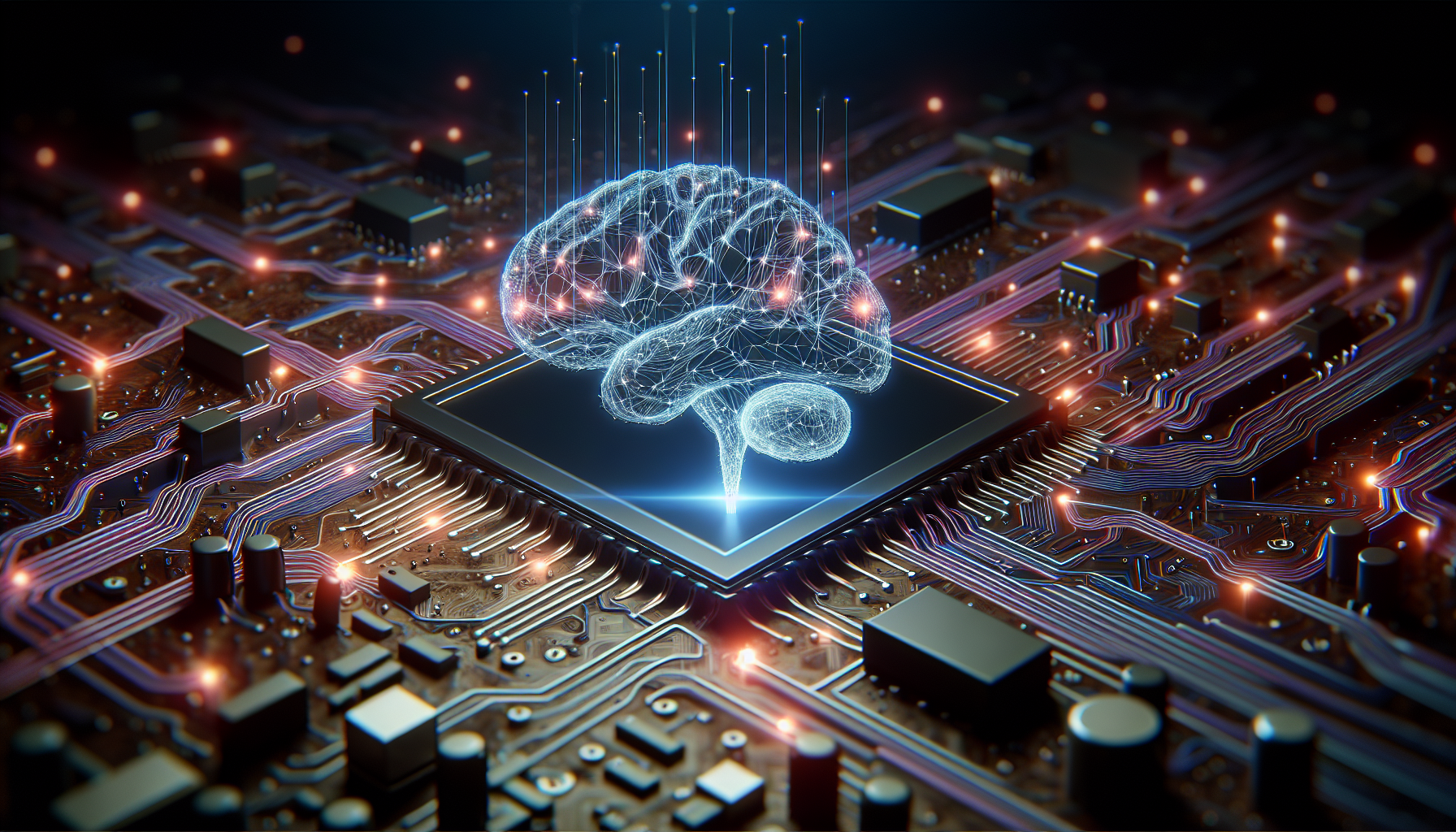If you’re eager to jump into the exciting world of artificial intelligence, you may find yourself wondering which programming language is best to start with. With countless options available, it can be overwhelming to pick just one. But fear not, as this article will guide you through the maze of choices and help you discover the ideal programming language for your AI journey. So, if you’re ready to embark on this thrilling adventure, let’s find out which language will unlock the doors to the realm of AI.
Understanding AI
Artificial Intelligence (AI) is a rapidly evolving field that aims to create intelligent machines capable of performing tasks that normally require human intelligence. It encompasses a wide range of applications, from virtual assistants and self-driving cars to healthcare and finance. To truly understand AI, it is important to delve into its definition, explore its applications across various fields, and recognize the significance of programming languages in this domain.
Defining AI
AI can be defined as the intelligence exhibited by machines that mimic human cognitive functions, such as learning, problem-solving, and decision-making. It involves the development of algorithms and models that allow computers to understand, interpret, and process information in a way that resembles human thinking. This field comprises subfields like machine learning, natural language processing, computer vision, robotics, and more.
AI in Various Fields
AI has made its way into various industries and sectors, revolutionizing the way tasks are performed. In healthcare, AI is being used for disease diagnosis, drug discovery, and personalized medicine. It has also found its applications in finance, optimizing trading strategies and fraud detection. Additionally, AI is transforming transportation with self-driving cars, improving customer service through virtual assistants, and even aiding in space exploration. With its versatility, AI is reshaping numerous domains and redefining what is possible.

Importance of Programming Language in AI
Programming languages play a crucial role in the development of AI systems. The choice of programming language affects the performance, efficiency, and ease of development of AI applications. When selecting a programming language for AI, several factors need to be considered to ensure the best results and efficient workflow.
Factors to Consider
Type of AI Application
The type of AI application being developed greatly impacts the choice of programming language. Different programming languages have strengths in specific areas of AI. For example, Python is widely used in machine learning and data analysis, while Java is preferred for building robust enterprise-level AI systems. Understanding the requirements and objectives of the project will help determine the most suitable programming language.
Availability of Libraries and Tools
The availability of libraries and tools can greatly simplify AI development. Programming languages with extensive libraries and frameworks dedicated to AI, such as TensorFlow and PyTorch for Python, provide developers with pre-built functions and algorithms, making AI implementation more efficient. It is essential to consider the breadth and quality of available resources when choosing a programming language for AI.
Scalability and Performance
Scalability and performance are critical factors, especially when dealing with large-scale AI systems. Some programming languages, like Python, offer excellent scalability and performance due to their extensive optimization libraries. Other languages, such as Java, are known for their ability to handle high-volume data processing efficiently. Considering the scalability and performance requirements of the AI application is crucial to ensure its successful implementation.
Ease of Use and Learning Curve
The ease of use and the learning curve associated with a programming language are important considerations, especially for beginners. Python, with its simple and readable syntax, is often favored by AI developers due to its intuitive nature. On the other hand, languages like LISP and Prolog may have steeper learning curves but provide unique capabilities and expressiveness. The choice of programming language should align with the developer’s proficiency and the project’s complexity.
Community Support and Resources
The support and resources available within the programming language’s community are invaluable for AI development. Active communities provide a platform for developers to seek guidance, share knowledge, and contribute to the growth of AI. Programming languages like Python, with a vast and vibrant community, offer extensive resources, online tutorials, forums, and libraries that make problem-solving and learning more accessible.

Popular Programming Languages for AI
There are numerous programming languages used in AI development, each with its strengths and areas of specialization. Some of the most popular programming languages for AI include Python, Java, R, Julia, LISP, Prolog, MATLAB, and JavaScript. Let’s briefly explore each language and its features.
Python
Overview and Features
Python is widely regarded as one of the most versatile and popular programming languages for AI. Its simplicity, readability, and extensive libraries make it a preferred choice for beginners and experts alike. Python’s focus on code readability and its clean syntax contribute to faster development cycles and efficient prototyping.
Libraries and Frameworks
Python offers a rich ecosystem of libraries and frameworks designed specifically for AI development. Libraries like NumPy, Pandas, and Scikit-learn provide efficient data handling and machine learning capabilities, while TensorFlow and PyTorch are powerful deep learning frameworks widely used in AI research and implementation.
Community and Resources
Python benefits from a large and active community of developers, scientists, and researchers who contribute to its growth. The availability of extensive documentation, online tutorials, and forums allows developers to find answers to their queries quickly. The community’s continuous development and innovation make Python an excellent choice for AI applications.

Java
Overview and Features
Java is a highly versatile, robust, and scalable programming language suitable for enterprise-level AI systems. Its platform independence and vast libraries enable the development of powerful AI applications that can be deployed across multiple operating systems. Java’s object-oriented nature and its built-in memory management contribute to secure and efficient code execution.
Libraries and Frameworks
Java provides a variety of libraries and frameworks dedicated to AI and data processing. Apache Mahout offers scalable machine learning and data mining capabilities, while Weka provides a comprehensive set of tools for data preprocessing, classification, clustering, and visualization. Java’s extensive libraries make it a reliable choice for AI development.
Community and Resources
Java’s popularity ensures a strong community support system with extensive resources available. The Java developer community is active and focused on continuously improving the language and its applications. Abundant documentation, tutorials, and forums cater to developers seeking assistance in developing AI systems using Java.
R
Overview and Features
R is a programming language specifically designed for statistical computing and data analysis. Its specialization in statistical modeling and visualization makes it a powerful tool for AI applications that rely heavily on data processing. R’s flexibility and expressive nature allow for advanced data manipulation and modeling techniques.
Libraries and Frameworks
R offers a wide range of libraries and packages specifically tailored for statistical analysis and data manipulation. The dplyr package provides efficient data manipulation capabilities, while the ggplot2 package offers sophisticated visualization techniques. R’s comprehensive libraries make it an ideal choice for statistical AI applications.
Community and Resources
R benefits from a strong and supportive community of statisticians, data scientists, and AI enthusiasts. The R community actively contributes to package development and offers comprehensive documentation, tutorials, and forums. The availability of vast resources ensures that developers can leverage R effectively for AI-related projects.

Julia
Overview and Features
Julia is a high-performance, dynamically-typed programming language designed for scientific computing and AI. Its focus on performance and simplicity makes it an attractive choice for computationally intensive AI algorithms. Julia’s ability to seamlessly integrate with existing code and its native support for parallel and distributed computing make it a powerful language for AI applications.
Libraries and Frameworks
Julia provides a growing ecosystem of packages and libraries to support AI development. Flux.jl is a popular framework for deep learning, while the Gen package facilitates probabilistic programming. The combination of performance and a wide range of libraries makes Julia well-suited for AI research and development.
Community and Resources
Julia’s community is relatively newer but continuously expanding. It benefits from passionate researchers and developers who strive to enhance the language’s capabilities. The community actively supports newcomers through online forums, comprehensive documentation, and learning resources, making Julia an exciting option for AI enthusiasts.
LISP
Overview and Features
LISP (LISt Processing) is a family of programming languages known for their power in symbolic and mathematical computation. LISP’s unique homoiconic nature and its emphasis on metaprogramming provide developers with unparalleled flexibility in creating intelligent systems. LISP’s ability to manipulate code as data makes it a compelling choice for AI applications.
Libraries and Frameworks
LISP offers various libraries and frameworks catering to different AI disciplines. Libraries like Common Lisp AI Utilities provide support for symbolic computation, while Clojure’s Incanter offers statistical computing capabilities. LISP’s vast ecosystem provides developers with the tools needed to build complex AI systems.
Community and Resources
LISP enjoys a small but dedicated community of developers who appreciate its unique features. The community offers extensive resources, tutorials, and forums to foster learning and collaboration. LISP’s long-standing presence in AI research and development ensures that developers can leverage its capabilities effectively.

Prolog
Overview and Features
Prolog is a logic programming language used extensively in AI and natural language processing. Its declarative nature allows developers to define rules and relationships, making it suitable for solving complex problems through logical reasoning. Prolog excels in areas such as expert systems, knowledge representation, and natural language understanding.
Libraries and Frameworks
Prolog provides a range of libraries and frameworks that support different AI applications. The Constraint Logic Programming library, clp(FD), enables constraint programming in Prolog, while the Natural Language Toolkit (NLTK) facilitates natural language processing. Prolog’s specialized libraries empower developers to create intelligent systems with ease.
Community and Resources
The Prolog community is dedicated and driven by a passion for logical reasoning and AI. The community actively supports newcomers by providing educational resources, tutorials, and forums where developers can seek assistance. Prolog’s extensive presence in AI research ensures a wealth of knowledge and resources available to developers.
JavaScript
Overview and Features
JavaScript is a popular programming language primarily used for web development. However, its versatility and widespread adoption have resulted in its integration into AI development. JavaScript’s ability to run in web browsers and its support for asynchronous programming make it suitable for AI applications that involve web-based interfaces or real-time data processing.
Libraries and Frameworks
JavaScript offers various libraries and frameworks that support AI development. TensorFlow.js enables machine learning in JavaScript directly in the browser, while Brain.js provides a user-friendly neural network library. JavaScript’s accessibility and the availability of AI-specific frameworks make it a viable choice for web-based AI applications.
Community and Resources
JavaScript benefits from an extensive and vibrant developer community due to its popularity in web development. While the JavaScript community’s primary focus is web-related development, resources, tutorials, and forums related to AI development in JavaScript are readily available. The vast ecosystem of JavaScript libraries and the support of the community unlock numerous possibilities for AI development.
In conclusion, when embarking on an AI development journey, it is crucial to consider the type of application, availability of libraries and tools, scalability and performance requirements, ease of use, and the support of the programming language’s community. From the popular programming languages discussed above, Python stands out as a versatile language with extensive AI libraries and a vibrant community. However, the choice of programming language ultimately depends on the specific requirements and objectives of the AI project. So, explore the features, libraries, communities, and resources associated with each language to make an informed decision and unlock the full potential of AI.






Leave a Reply